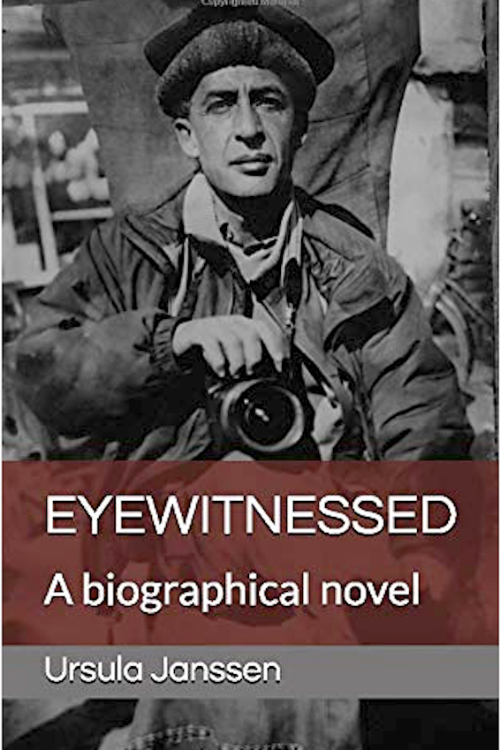Interview with Ursula Janssen
Author of Eyewitnessed: A biographical novel
Ursula Janssen, born 1978, is an archeologist and freelance author and now lives with her husband and daughter in southern Italy, after spending several years living and working in various countries in Africa and the Middle East. She writes mostly historic novels but has also published a novel for young readers.
Buy this book
How would you describe "Eyewitnessed" to a new reader?
- "Eyewitnessed" is a biographical novel: it is narrated as fiction, but it is completely factual. A vast number of real historical encounters form the background for personal stories, both dramatic and comical. It is the story of a life, but at the same time a 20th century history book and an appeal for the freedom of press.
What was the inspiration behind Eyewitnessed ?
- Looking for inspiration for my next novel, I suddenly realized that I had a unique source, not only of stories, but of history right in front of me. Manoocher kept telling me details about his adventurous lives around the world, from before we met, eighteen years ago. So I have decided to write them down. Many of his memories seem incredible, more fantastic than any fictional story. But they are true.
Which authors do you admire? How have they influenced your writing style?
- My favorite author is Umberto Eco. I love his depth, his ability to construct connections. But my writing style is shorter and denser.
Can you tell us a little about the locations in your book?
- The narrative draws a bridge from Manoocher's childhood in Iran to the present day and covers the period under the rule of the Shah, life in vibrant Rome in the 1970s, the Iranian Revolution, the US hostage crisis and its failed rescue mission, the horrors of the Iran-Iraq war, his exile, the conflicts and the peace process in Central America in the late 1980s/early 1990s, the siege of Sarajevo, the Middle East peace process and its eventual failure, Somalia, the Gulf War, his injury in Palestine and subsequent stay in the French military hospital Hôpital des Invalides, the founding of Afghanistan's first photojournalism school, his time at the United Nations, the events surrounding the Arab Spring, and finally the recent period in Italy.
What advice would you give to aspiring authors?
- Find an interesting subject that really inspires you and go for it!
What's your writing process?
- As an archaeologist, the historical accuracy of my novels is of great importance to me. That’s why I throughly study a subject before turning it into a novel. All the historical background behind the fictional plot, the literature mentioned, many of the characters, are factual. But this book, “Eyewitnessed“, is entirely factual and - despite being written in form of a novel - has no fictional elements in it.
Which character in “Eyewitnessed“ has had the greatest impact on readers?
- Well, as “Eyewitnessed“ is a biographical novel and is written from the perspective of photojournalist Manoocher Deghati, it is certainly him who has the greatest impact.
If “Eyewitnessed“ were to be adapted for TV or film, who would you see in the lead role? Who did you have in your mind’s eye when you wrote him/her?
- Oh dear, I'm not much of a film person, I always prefer the book to any adaption. But in this case... I have no idea, honestly.
How have readers responded to “Eyewitnessed“?
- I got a lot of fantastic reviews, especially for the Italian translation "Ho Visto". It has been reviewed, among other, in "La Repubblica" and the "Osservatore Romano". And readers keep telling me that they got really inspired by my book.
Where next? What are you working on now?
- I haven't made my newest project public yet but I can say as much that it again requires a lot of research, this time even more in the line of my original profession as an archaeologist, but will be of great actuality nevertheless.
Synopsis
“Eyewitnessed” describes the adventurous and bold life of Iranian-French photojournalist Manoocher Deghati against the backdrop of the past fifty years of world history: extraordinary experiences, remarkable encounters, incredible coincidences, and numerous anecdotes, some of which are more fantastic than any fictional story could be. At the same time, they illustrate the nature of oppression, the pursuit of freedom and an indestructible zest for life.

